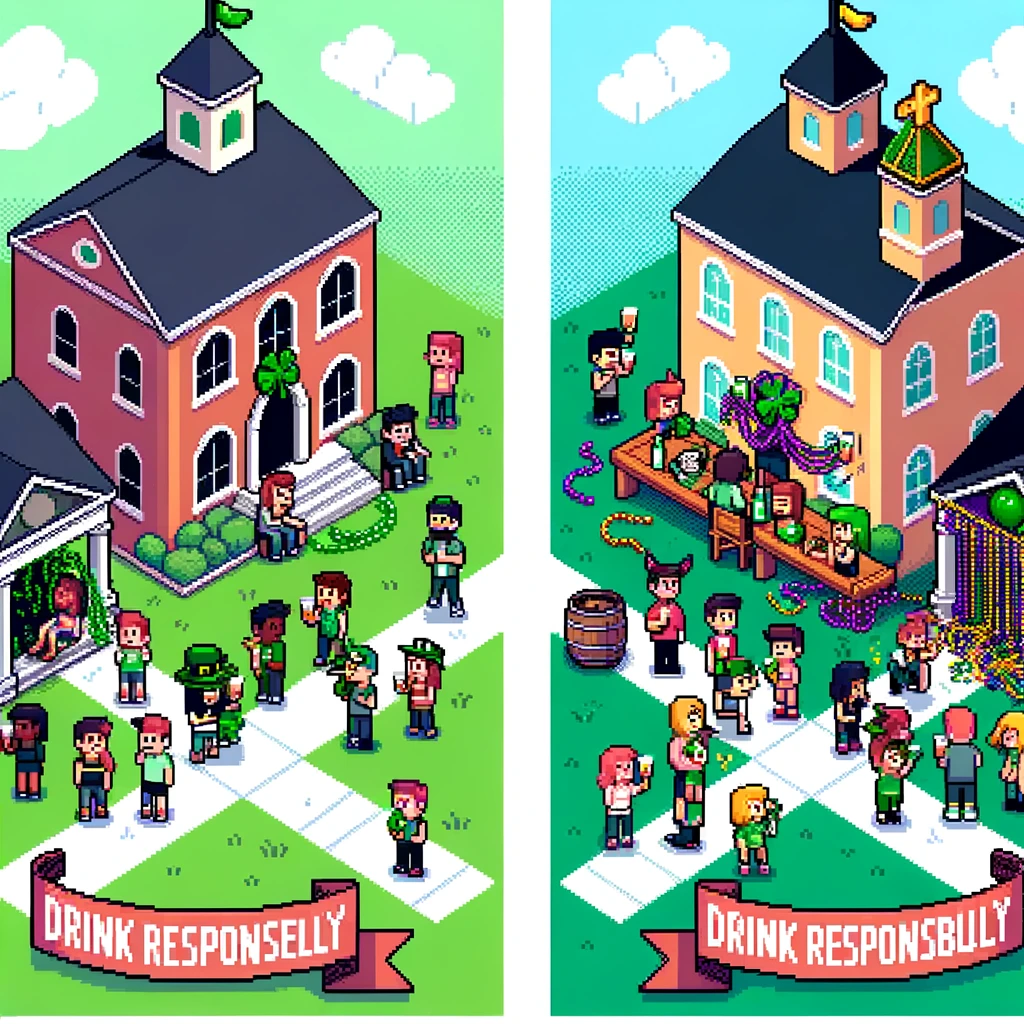
The Link Between Campus Traditions and Event-Specific Drinking
So it’s St. Patrick’s Day.
Public health practitioners and university administrators take note: the unique traditions of a college campus can significantly influence students’ drinking behaviors during specific events.
This is the key finding of an insightful study titled The Impact of Campus Traditions and Event-Specific Drinking. This research provides a fascinating glimpse into how campus culture shapes students’ alcohol consumption during celebratory events, offering valuable insights for those aiming to foster healthier campus environments.
Understanding the Study
The study compared undergraduate students from two different universities, each with distinct traditions for celebrating St. Patrick’s Day and Mardi Gras. The researchers surveyed students before and after these events, focusing on their expectations of peer drinking, their drinking intentions, and actual alcohol consumption. The findings were revealing: students at the university with a strong tradition for St. Patrick’s Day reported higher drinking intentions and actual consumption during the event compared to their counterparts at the other university, which had a notable Mardi Gras tradition.
Implications for Public Health Practitioners
Addressing Campus-Specific Drinking Traditions
The study underscores the need for public health practitioners to consider the unique cultural aspects of each campus when designing alcohol prevention and intervention programs. Customized strategies that address specific event-related traditions could be more effective than one-size-fits-all approaches. For instance, a university known for its significant St. Patrick’s Day celebrations might require targeted interventions around that time, focusing on responsible drinking and alternative non-alcoholic events.
Reexamining Normative Beliefs
The research also highlights the powerful role of normative beliefs in influencing drinking behavior. Public health initiatives could benefit from campaigns that correct misconceptions about the prevalence and acceptability of heavy drinking during certain events. By altering the perceived norms around event-specific drinking, it may be possible to reduce the overall consumption of alcohol.
Integrating Data into Policy
Universities and health officials can use such data to inform policies and programs. Understanding the specific events that drive higher alcohol consumption can help in planning resources, such as increased support from counseling services or campus police during these times. Additionally, this study could inspire further research on other campuses, leading to a more comprehensive understanding of college drinking culture.
Engaging the Campus Community
It’s not just about top-down approaches. Engaging students in the conversation about campus drinking culture is crucial. Universities could initiate student-led forums and workshops to discuss these issues, empowering students to be part of the solution. Moreover, involving students in creating and promoting campus events that offer alternatives to drinking can foster a healthier campus environment.
Action
This study emphasizes that it is crucial to understand and address the unique cultural factors that influence student behavior. By doing so, we can create safer, healthier campus environments that support student well-being.
Empower Your Public Health Journey – Subscribe and Transform!
Unlock the transformative power of knowledge with ‘This Week in Public Health.’ Each issue is a treasure trove of insights into crucial research, community health achievements, and advocacy strategies. Don’t just read about change – be the agent of it. Subscribe for free and start making an impact with each edition!



